|
|
|
|
|
|
|
|
No Arctic science events are announced today.
|
Media
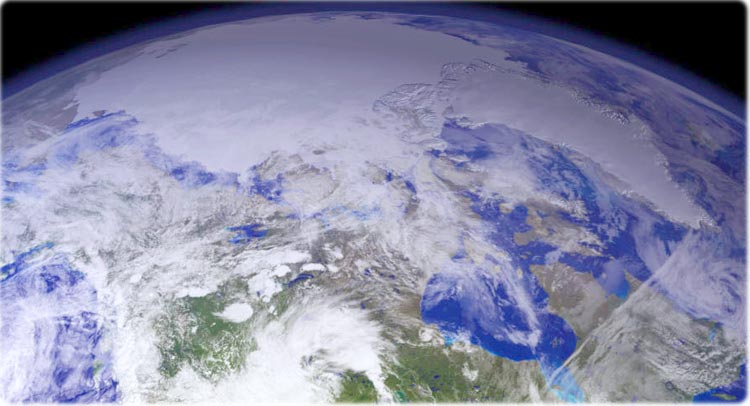 The Arctic is Melting. Here's Why Cooperation and Diplomacy Get so Complicated. The Arctic is Melting. Here's Why Cooperation and Diplomacy Get so Complicated. Heatwaves from Greece to Siberia - and fires north of the Arctic Circle - are the latest signs this summer that the Arctic is warming twice as fast as the rest of the world. This once-inhospitable corner of the globe is becoming the next global commons, as the polar ice cap melts. This will have broad implications for Arctic as well as non-Arctic nations, and for local and global ecosystems. But the changing environment, new sea lanes and potential new commercial opportunities also open up global security and diplomacy questions. The Washington Post
China's Latest Underwater Glider, Sea Fog Detector Make Arctic Debut. China's home-grown underwater glider and sea fog detector will be used for the first time in an arctic expedition, which is expected to enhance China's research in the field and strengthen the country's bargaining position on Arctic issues, expert said. The glider Haiyi, Chinese for "sea wings," was launched in the Bering Sea area on Saturday. Haiyi will be used to measure the ocean's temperature, salinity and depth, said Lin Lina, a member of the expedition team, Beijing Daily reported. ECNS
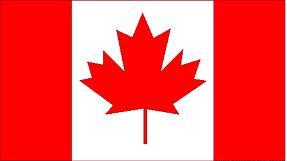 Canadian Coast Guard Opens First Rescue Boat Station in the Arctic. Canadian Coast Guard Opens First Rescue Boat Station in the Arctic. The Canadian Coast Guard has officially opened its first inshore rescue boat station in the Arctic. A celebration was held in Rankin Inlet, Nunavut, on Thursday to mark the event. The station is part of a federally run program to give work experience to post-secondary students. Those who work at the station learn skills such as search and rescue - the Rankin team will work directly with local search and rescue operations. CBC News
United States, Canada Study Options to Replace Arctic Early Warning Radars. The United States and Canada are beginning to study potential replacements for a jointly operated network of unmanned air defense radars at the top of North America. However, the re-emergence of great power competition could prompt the close allies to develop new missile warning capabilities. The North Warning System consists of a series of 11 long-range AN/FPS-117 radars and 36 short-range AN/FPS-124 systems that together stretch nearly 3,000 miles long and over 14 miles wide from Canada's Newfoundland and Labrador province to Alaska. It was put in place and has been operated and maintained by the North American Aerospace Defense Command since the late 1980s, replacing the Distant Early Warning Line that had been built in the 1950s. National Defense Magazine
How (and Why) to Teach a Polar Bear to Walk on a Treadmill. You probably won't see this at your local gym. Researchers used furry Fitbit technology to find out how much energy bears use up while walking. Tatqiq seemed unsure about the treadmill. After all, the 580-pound polar bear had never even seen such an apparatus, let alone walked on one. The first time it moved, Tatqiq just stood there and watched herself slide backwards. Nate Wagner, senior zookeeper at the San Diego Zoo, tried enticing her with a dead fish. Tatqiq took a tentative step forward, and then another-she couldn't resist a fish-flavored bribe. Those first few steps marked the start of a five-month training process teaching Tatqiq to walk on a treadmill not for exercise, but for science. Popular Science
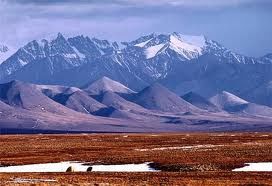 BLM Projects 'Insignificant' Impact from Seismic Work in ANWR. BLM Projects 'Insignificant' Impact from Seismic Work in ANWR. The first sign of oil development in Arctic National Wildlife Refuge is likely to be a 3D seismic survey. A company has applied to do the work, and the government has deemed the application complete. Everything about the proposal to drill in ANWR is controversial. Still, officials from the Bureau of Land Management said this week they see no need to do a full environmental impact statement for the seismic work and expect to approve the request in time for work to begin this winter. Alaska Public Radio
|
|
Future Events
Seeking Comment: Principles for Conducting Research in the Arctic, July 31, 2018 (Webinar).  The Interagency Arctic Research Policy Committee (IARPC) is seeking comment from the public on the draft newly revised Principles for Conducting Research in the Arctic. The Principles are directed at federally-funded researchers, though they may be useful to academic, state, local, and tribal researchers in the Arctic. Attend our listening session on July 31 at 11 AM Alaska / 3 PM Eastern to learn more and submit your comments: here.
More than 750 participants generally register and
participate in each Congress, and more than 400 scientific papers or posters are usually presented.
UArctic Congress 2018, September 3-7, 2018 (Oulu and Helsinki, Finland). The UArctic Congress 2018 will bring together key UArctic meetings and a science conference into one single gathering, including business meetings of the Council of UArctic, Rectors' Forum, Student Forum, and Thematic Networks & UArctic Institutes Leadership Team. The Congress is an integral part of the Finland's Arctic Council chairmanship program, and open to the public. The event will highlight the themes and priorities of the Finnish chairmanship, including the goals of the United Nations' 2030 Agenda for Sustainable Development, and the Paris Agreement under the UN Framework Convention on Climate Change.
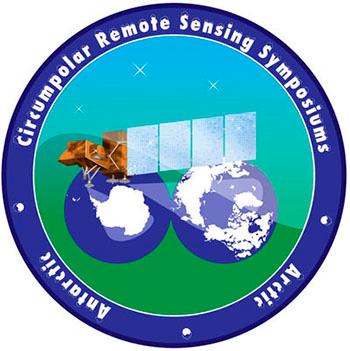
Scientific Exploration of the Arctic and North Pacific (SEA-NorP), September 25-27, 2018 (Mt. Hood, Oregon USA). This workshop will include discussion of hypotheses that can be tested by scientific drilling in the region, the technology necessary to achieve those goals, ideal sites for drilling based on existing data, and where additional site survey data is needed. The goal of the workshop organizers is that multiple proposals will be initiated at the workshop, both for full cruise legs and for shorter, targeted expeditions around the following themes: ocean gateways, geohazards, volatile cycling, ice histories at transition zones, biosphere and climate.
The second Arctic Biodiversity Congress is hosted by the Conservation of Arctic Flora and Fauna (CAFF), the biodiversity working group of the Arctic Council, and the Ministry of the Environment, Finland. The second Arctic Biodiversity Congress will build on the success of the first Congress, held in 2014 in Trondheim, Norway, and will bring together scientists, policymakers government officials, Indigenous representatives, Traditional Knowledge holders, industry, non-governmental organizations, and others to promote the conservation and sustainable use of Arctic biodiversity.
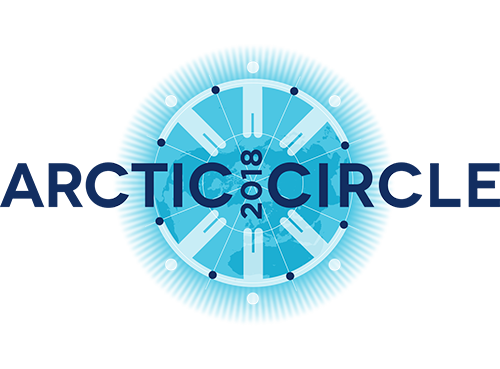 Arctic Circle Assembly, October 2018 (Reykjavik, Iceland). The annual Arctic Circle Assembly is the largest annual international gathering on the Arctic, attended by more than 2000 participants from 60 countries. It is attended by heads of states and governments, ministers, members of parliaments, officials, experts, scientists, entrepreneurs, business leaders, indigenous representatives, environmentalists, students, activists and others from the growing international community of partners and participants interested in the future of the Arctic. Arctic Circle Assembly, October 2018 (Reykjavik, Iceland). The annual Arctic Circle Assembly is the largest annual international gathering on the Arctic, attended by more than 2000 participants from 60 countries. It is attended by heads of states and governments, ministers, members of parliaments, officials, experts, scientists, entrepreneurs, business leaders, indigenous representatives, environmentalists, students, activists and others from the growing international community of partners and participants interested in the future of the Arctic.
Arctic Science Forum Associated with the 2nd Arctic Science Ministerial, October 25, 2018 (Berlin, Germany and via webcast). How vulnerable and how resilient are nature and the people of the Arctic region? How well do we understand the regional and global dynamics which are driving change in the Arctic? What impact will change in the Arctic have on us? These and other questions are the focus of this two-day conference. It will take interdisciplinary research in the Arctic to gain an understanding of past and future processes - a complex and cost-intensive venture. This makes an international network of Arctic research so important for delivering better results. Cooperation in research, the exchange of data, collaborative observation and monitoring schemes - international cooperation is imperative in research on the Arctic.
Only the Science Forum, on October 25th, will be webcast. The Arctic Ministerial, on October 26th, will NOT be webcast.
American Geophysical Union Fall meeting, December 10-14, 2018 (Washington, DC USA). The AGU 2018 Fall Meeting will mark another dynamic year of discovery in Earth and space science, serve as the advent of AGU's Centennial year, and provide a special opportunity to share our science with world  leaders in Washington, D.C. As the largest Earth and space science gathering in the world, the Fall Meeting places you in the center of a global community of scientists drawn from myriad fields of study whose work protects the health and welfare of people worldwide, spurs innovation, and informs decisions that are critical to the sustainability of the Earth.
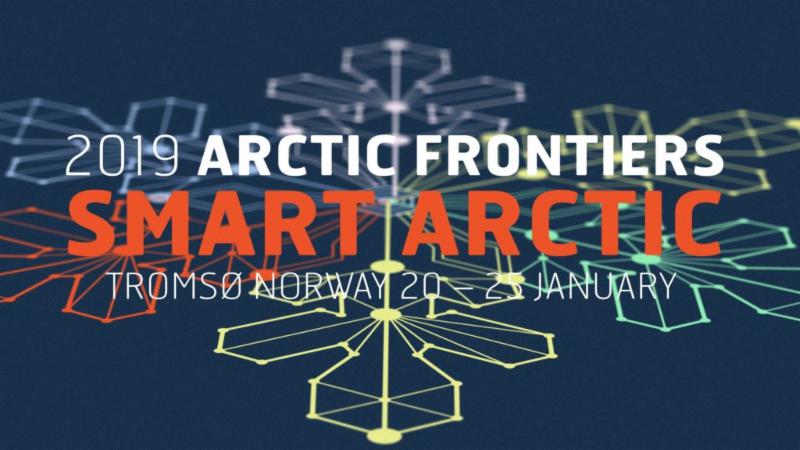 is a global scientific conference on economic, societal, and environmental sustainable growth. This year's theme will be "Smart Arctic," with a pan-arctic emphasis, and an effort to build new partnerships across nations, generations and ethnic groups. Arctic Frontiers provides a forum for dialogue and communication between science, government and industry. The plenary program will have five main sessions: State of the Arctic, Blue Growth, Smart Solutions, Bridging the Gap, and Arctic business prospects. An abstract-driven science program will address Plastics in the Ocean, the Future of Governance and Handling Vulnerability in Arctic Ecosystems, State of the Arctic and A Smart Arctic Future.
|
|

  
4350 N. Fairfax Drive, Suite 510
Arlington, VA 22203, USA
External links in this publication, and on the USARC's World Wide Web site ( www.arctic.gov) do not constitute endorsement by the US Arctic Research Commission of external Web sites or the information, products or services contained therein. For other than authorized activities, the USARC does not exercise any editorial control over the information you may find at these locations. These links are provided consistent with the stated purpose of this newsletter and the USARC Web site.
|
|
|
|
|
|
|
|
|
 The Arctic is Melting. Here's Why Cooperation and Diplomacy Get so Complicated. Heatwaves from Greece to Siberia - and fires north of the Arctic Circle - are the latest signs this summer that the Arctic is warming twice as fast as the rest of the world. This once-inhospitable corner of the globe is becoming the next global commons, as the polar ice cap melts. This will have broad implications for Arctic as well as non-Arctic nations, and for local and global ecosystems. But the changing environment, new sea lanes and potential new commercial opportunities also open up global security and diplomacy questions. The Washington Post
The Arctic is Melting. Here's Why Cooperation and Diplomacy Get so Complicated. Heatwaves from Greece to Siberia - and fires north of the Arctic Circle - are the latest signs this summer that the Arctic is warming twice as fast as the rest of the world. This once-inhospitable corner of the globe is becoming the next global commons, as the polar ice cap melts. This will have broad implications for Arctic as well as non-Arctic nations, and for local and global ecosystems. But the changing environment, new sea lanes and potential new commercial opportunities also open up global security and diplomacy questions. The Washington Post Canadian Coast Guard Opens First Rescue Boat Station in the Arctic. The Canadian Coast Guard has officially opened its first inshore rescue boat station in the Arctic. A celebration was held in Rankin Inlet, Nunavut, on Thursday to mark the event. The station is part of a federally run program to give work experience to post-secondary students. Those who work at the station learn skills such as search and rescue - the Rankin team will work directly with local search and rescue operations. CBC News
Canadian Coast Guard Opens First Rescue Boat Station in the Arctic. The Canadian Coast Guard has officially opened its first inshore rescue boat station in the Arctic. A celebration was held in Rankin Inlet, Nunavut, on Thursday to mark the event. The station is part of a federally run program to give work experience to post-secondary students. Those who work at the station learn skills such as search and rescue - the Rankin team will work directly with local search and rescue operations. CBC News BLM Projects 'Insignificant' Impact from Seismic Work in ANWR. The first sign of oil development in Arctic National Wildlife Refuge is likely to be a 3D seismic survey. A company has applied to do the work, and the government has deemed the application complete. Everything about the proposal to drill in ANWR is controversial. Still, officials from the Bureau of Land Management said this week they see no need to do a full environmental impact statement for the seismic work and expect to approve the request in time for work to begin this winter. Alaska Public Radio
BLM Projects 'Insignificant' Impact from Seismic Work in ANWR. The first sign of oil development in Arctic National Wildlife Refuge is likely to be a 3D seismic survey. A company has applied to do the work, and the government has deemed the application complete. Everything about the proposal to drill in ANWR is controversial. Still, officials from the Bureau of Land Management said this week they see no need to do a full environmental impact statement for the seismic work and expect to approve the request in time for work to begin this winter. Alaska Public Radio
 The Interagency Arctic Research Policy Committee (IARPC) is seeking comment from the public on the draft newly revised Principles for Conducting Research in the Arctic. The Principles are directed at federally-funded researchers, though they may be useful to academic, state, local, and tribal researchers in the Arctic. Attend our listening session on July 31 at 11 AM Alaska / 3 PM Eastern to learn more and submit your comments:
The Interagency Arctic Research Policy Committee (IARPC) is seeking comment from the public on the draft newly revised Principles for Conducting Research in the Arctic. The Principles are directed at federally-funded researchers, though they may be useful to academic, state, local, and tribal researchers in the Arctic. Attend our listening session on July 31 at 11 AM Alaska / 3 PM Eastern to learn more and submit your comments: 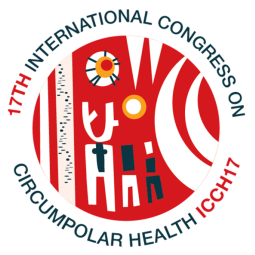 year in different locations in the circumpolar area and represent the largest scientific meetings worldwide on circumpolar health. The ICCH congresses serve as the primary source of information exchange and scholarly communication in issues relating to circumpolar health.
year in different locations in the circumpolar area and represent the largest scientific meetings worldwide on circumpolar health. The ICCH congresses serve as the primary source of information exchange and scholarly communication in issues relating to circumpolar health. 


